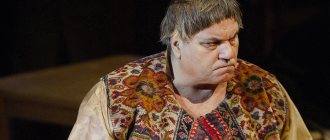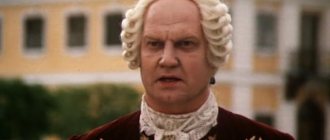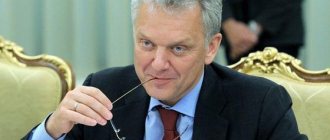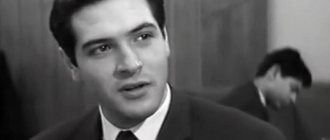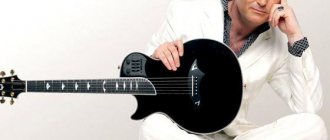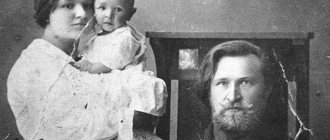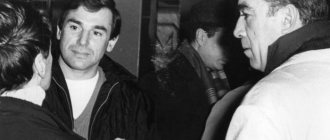Childhood of Viktor Pavlov
The future actor Viktor Pavlov was born in October 1940 in Moscow.
His mother was a doctor and met his father, Pavel Pavlov, in Chita. Due to the fact that even in pre-war times Pavlov Sr. specialized in military equipment, at the beginning of the Great Patriotic War he was assigned to the engineering troops, which helped him survive.
Not every child who survived the war could boast that his father had returned. However, Viktor Pavlov was lucky in this regard. His father not only survived, but also made a good career in future years, retraining from military equipment to agricultural work. Subsequently, this helped him take the post of Deputy Minister of Agriculture of the RSFSR.
Despite working in this field, Pavel Pavlov was a very intelligent person and a passionate theatergoer. It was he who instilled in his son a love for this art. And starting from the 3rd grade, young Vitya and his father attended the brightest premieres of the most famous Moscow theaters.
Unlike his father, the future actor not only loved to watch performances from the sidelines, but also dreamed of playing in them himself. For this reason, while still a schoolboy, the boy enrolled in a local drama club and participated in most productions.
Pavlov's work in different theaters
Unfortunately, the actor’s life did not work out in Sovremennik.
He believed that he was underestimated, comparing himself with the same Dahl, who was given many interesting roles. Viktor Pavlovich went to Ermolova’s theater with a scandal. At that time, the theater staff consisted mostly of older generation actors. When the young talented Pavlov came to them, he was received very kindly. While playing, he could learn acting skills from them. One of his most successful roles was played in this theater in the production of “Time and the Conway Family.”
Viktor Pavlov in the film Crane in the Sky In 1968, Pavlov again changed theaters. The reason is not only the actor’s difficult character, but also his disagreement on some creative issues; he believed that every artist should have the right to choose. His next place of work was the Mayakovsky Theater. He played there with Armen Dzhigarkhanyan, Svetlana Nemolyaeva, Tatyana Doronina, Evgeny Leonov, Maria Babanova and others. This period of the actor’s creative life can be called the most fruitful and successful. The range of roles he played on stage was wide. Viktor Pavlovich worked in “Destruction”, “Children of Vanyushin”, “Conversations with Socrates”. In the production of "Man of La Mancha" he played the role that became his favorite - the role of Sancho Panza. He played this role, replacing Evgeny Leonov, but managed to create his own unique image of the hero, whom the audience immediately fell in love with.
In 1977, Viktor Pavlovich returned to the Maly Theater. By that time, his creative capabilities were already known to everyone, so he began to play with Tsarev and Annenkov, his former teachers. There he played a lot of interesting multi-faceted roles in productions: “Woe from Wit”, “King Lear”, “My Favorite Clown”, “The Inspector General”, etc. In “King Lear” he got the difficult role of a jester, which he showed brilliantly, managing create the image of a jester without buffoonery.
Most likely, the actor would have continued to work in this theater, but received an offer from director Fokin, who came to Ermolova’s theater and was going to attract interesting playwrights there. It was 1985, times were changing, the actors wanted to play something new. With the participation of Pavlov, the theater hosted the performances “Speak...”, “The Last Visitor” and “The Second Year of Freedom”. Separately, it is necessary to say about the production “Sports Scenes 1981”. In addition to Pavlov, many famous actors played in it, including Tatyana Doronina and Oleg Menshikov.
Over time, Pavlov felt that the director’s interest in him began to disappear. He believed that in this case the actor should leave the theater, which he did. Viktor Pavlovich returned to Maly, where he worked until the end of his life.
From mechanic to artist
Despite Pavlov Sr.’s love for the theater, he was not sure that this profession would be able to support his son. Therefore, he encouraged Victor to leave school after 8th grade and begin an internship at a factory as an apprentice mechanic and then a radio installer.
Therefore, after work, the young man studied at evening school to receive a certificate. However, the dream of becoming an artist did not leave him. Therefore, he enrolled in Vadim Bogomolov’s drama club at the Teacher’s House.
Bogomolov quite soon noticed Pavlov’s outstanding talent and strongly advised him to go to study at a theater university after receiving his certificate. Following the advice of his mentor, Viktor Pavlov soon entered the Shchepkinsky School on the course of Nikolai Annenkov and Vera Pashennaya.
The actor Viktor Pavlov considered the years spent here to be the best in his life. The course he studied was truly outstanding, because such future stars as O. Dal, V. Solomin, M. Kononov, Y. Baryshev and M. Fomina studied with Pavlov. Pavlov’s teachers were so selfless that they forced their students not only to love their profession, but to live it.
All these efforts were not in vain and after graduation Pavlov was invited to work at Sovremennik, which was considered one of the best theaters in the USSR.
Acting career of Viktor Pavlov, filmography
While still a student, Pavlov took part in the work on the film “When the Trees Were Big” and played the role of a joker soldier in the film “On the Seven Winds,” where he very accurately managed to create the required image. In 1963, he graduated from college and joined the Sovremennik troupe. Oleg Dal played there with him.
Viktor Pavlovich was immediately noted by the audience due to the fact that he excelled in both comedic and lyrical roles. He played in “Forever Alive”, “The Naked King”, “Big Sister”. At the same time, Pavlov played an unforgettable student with a poor student in the film “Operation-Y”. Thanks to Leonid Gaidai, the actor found himself in the comedy genre.
Pavlov's theatrical career
In such a famous institution, the young actor Viktor Pavlov was quite warmly received, and he was immediately offered several interesting roles. However, playing in the plays “The Naked King”, “The Elder Sister”, “Cyrano de Bergerac” and others, the artist did not feel that he was in the right place. Therefore, after 2 years he moved to the theater. M. N. Ermolova.
Here the young artist played 8 bright roles, his most famous hero being Beavers from the play “Time and the Conway Family.”
Despite a successful career in the new institution, in 1969 the artist moved to the V.V. Theater. Mayakovsky. He did this in order to work together with the famous director Andrei Goncharov.
In the new theater, Viktor Pavlov played in such sensational productions as “Conversations with Socrates”, “Man of La Mancha”, “Talents and Admirers”, “Aristocrats”. In 1975, Viktor Pavlov again changed the theater and moved to Maly. He quickly turns into a leading artist, and often spectators come to performances not for the sake of the performances themselves, but to look at Pavlov.
The most famous plays with the participation of the artist at the Maly Theater are “King Lear”, “The Inspector General”, “Woe from Wit”, “Warm Heart”, “Forest” and others.
In 1985, the actor returned to the theater named after M. N. Ermolova for 5 years, and then until the end of his days he again continued to work in Maly.
What is remarkable about Pavlov’s career is that despite his fantastic workload of filming, he never left the theater and always miraculously combined these two activities.
Theater
In 1963, Viktor Pavlov received a diploma from Sliver and was accepted into the Sovremennik troupe. At that time, the artist of this theater was Oleg Dal. They met more than once on the stage in the performances “Forever Alive”, “The Naked King”, “Elder Sister” and others.
But at some point the actor felt like he was being underestimated. In comparison with Dahl, he was entrusted with insignificant and colorless roles. Pavlov left Sovremennik with a scandal for Galina Ermolova’s theater. Here he was received kindly and entrusted with prominent roles. One of the most successful is Beavers in the play “Time and the Conway Family.” But after 4 years, Viktor Pavlovich again changed the stage and moved to the V. Mayakovsky Theater.
Viktor Pavlov in the play “Time and the Conway Family”
The artist changed scenes more than once, which was explained by his difficult character and unwillingness to compromise. And yet, the most fruitful were the years of service at the Mayakovsky Theater, where Pavlov was lucky to work side by side with such stars as Armen Dzhigarkhanyan, Svetlana Nemolyaeva, Tatyana Doronina and Evgeny Leonov.
In Mayakovka the widest range of roles was played. In “Man of La Mancha” Pavlov played Sancho Panza, so much so that he eclipsed all other actors with his skill. And there were also brilliant productions that attracted full houses for several seasons in a row: “Destruction”, “Vanyushin’s Children”, “Conversations with Socrates”. The last years of his life, Viktor Pavlov served at the Maly Theater.
Gaidai's first film roles and triumph
Viktor Pavlov began acting while still a student, in 1961, in the film “When the Trees Were Big.” His typical Slavic appearance was immediately noted by directors and he was often invited to small roles as workers (“Taiga Landing”) or soldiers (“An Inch of Earth”).
A real breakthrough was the role of a student nicknamed “Oak”, who decided to outwit a strict examiner with the help of a clever device in Gaidai’s film “Operation “Y” and other adventures of Shurik.” Although Pavlov's character appeared in only a few small episodes of the film, he made the whole country literally cry with laughter.
Gaidai liked the young artist so much that a few years later he invited him to play a small role in another of his comedies, “The Twelve Chairs.”
Movies
The cinematic biography of Viktor Pavlov began with episodes in several films. The young actor enjoyed his first significant role in 1961, when the film “When the Trees Were Big” was released. It was a kind of springboard, after which the artist filmed without stopping.
Viktor Pavlov in the film “Operation “Y” and other adventures of Shurik”
He was great at comedic roles. The first in this genre was the image of a joker soldier in the film “On the Seven Winds.” But Leonid Gaidai managed to truly discover the comedian in Pavlov. After the release of “Operation Y”, where Viktor Pavlovich got the role of a poor student with a radio transmitting device, the young actor woke up famous.
A few years later he was considered the most sought-after film actor. Viktor Pavlov's filmography includes one and a half hundred roles, many of which are major. He appeared more than once in Gaidai's comedies. There were also serious roles in the films “Major Whirlwind”, “His Excellency’s Adjutant”, “Hello and Farewell”, “Midshipmen, Forward!”, “Road Check” and “Fight in a Blizzard”.
Viktor Pavlov in the film “The meeting place cannot be changed”
The role in the cult series by Stanislav Govorukhin “The meeting place cannot be changed” turned out to be truly stellar. Fans of the talent of this multifaceted and deep actor agree that Viktor Pavlov is a versatile artist. He is equally organic in the tragic role of Levchenko in Govorukhin’s crime series, and in the comedies beloved by millions “Monday’s Children” and “Don’t Go, Girls, to Get Married.”
The last movie in which the favorite actor appeared was Vladimir Zlatoustovsky’s comedy “Moscow is Smiling,” which was released in 2008.
A kaleidoscope of films with Pavlov in the 60-70s.
Many believed that after Gaidai’s roles, Pavlov would secure the role of a comic artist. Moreover, in the theater he often played funny characters, and everyone loved and appreciated this facet of his talent. But Viktor Pavlov managed to prove to everyone that he was capable of playing outside of any role.
If in the second half of the 60s he starred in 1-2 films per year, then in the next decade the artist began to appear in 5-6 projects a year.
Due to his slightly plump physique, Palov played mainly merchants, petty intellectuals and servants in many historical films of this period - “Dauria”, “The Old Fortress”, “Hamlet of Shchigrovsky District”, “The Strogs”, “The Only Road”, “The Fourth Height” , “While the Dream Goes Wild”, “Emelyan Pugachev”, “Dumas in the Caucasus” and others.
The seventies ended for Pavlov with one of his most beautiful film works - the role of the bandit Levchenko in the film “The Meeting Place Cannot Be Changed.”
Biography[ | ]
Born on October 5, 1940 in Moscow, on Krasnaya Presnya. After graduating from an eight-year school (in 1956), he began working at a factory as a mechanic, at the same time he studied at a school for working youth and played in a drama club at the Teacher's House, the leader of which was the actor and director of the Moscow Art Theater V. N. Bogomolov, who convinced him to replace the Bauman Moscow Higher Technical School enter the theater. In 1959, he became a student at the M. S. Shchepkin Higher Theater School (course of N. A. Annenkov), which he graduated in 1963. I studied on the course together with Mikhail Kononov, Vitaly Solomin and Oleg Dahl[1].
He acted in episodic roles in films starting in 1961. The first film with his participation that was released on the screen was “When the Trees Were Big” by Lev Kulidzhanov. The actor's finest hour was a cameo role in the film "Operation Y", in which he played a smartly dressed student who came to take an exam with a hidden walkie-talkie.
Professor (actor Rautbart): - What is this in connection with? Are you having any holiday today?
Student: — An exam is always a holiday for me, professor.
— Commendable. Ticket please.
— Ticket number 9. (
departs
).
Welcome. - What did you say? What "reception"?
— I didn’t say “reception”, but “with him”: ticket No. 9, and with him a task.
Subsequently, he became one of the most frequently starred and popular actors (his filmography includes more than 170 films), without stopping his work on stage.
He was an actor in the following theaters:
- 1962-1965 - Moscow Sovremennik Theater
- 1965-1969 - Moscow Drama Theater named after M. N. Ermolova
- 1969-1975 - Moscow Academic Theater named after Vladimir Mayakovsky
- 1975-1985 - Maly Theater
- 1985-1990 - Moscow Drama Theater named after M. N. Ermolova
- since 1990 - Maly Theater
He died on August 24, 2006 in Moscow from a stroke. He was buried at the Kuntsevo cemetery in Moscow.
Roles of the artist in the 80s.
In the new decade, Viktor Pavlov has already turned 40 years old, but age has not become an obstacle to his career. As in previous years, he is filming a lot. But now these are not only historical films (“Say a word for the poor hussar”, “Son of the Regiment”, “Chelyuskinites”, “At the edge of the sword”, “Midshipmen, forward!”), but also everyday and acute social dramas (“The Last Escape” , “Village story”, “Singles are provided with a hostel”, “Among the gray stones”, “Mirgorod and its inhabitants”, “For the coming century”, “Don’t go, girls, get married”, “Bright personality”, “Katala”, “Lawyer "), fairy tales for children ("Rock and Roll for Princesses", "The Purple Ball").
Personal life
The actor met his first and only wife at the Ermolova Theater. During rehearsals, he did not take his eyes off the beautiful Tatyana Govorova. After persistent courtship, she responded to her colleague’s attentions, and soon their wedding took place.
Viktor Pavlov and his wife Tatyana Govorova
The entire personal life of Viktor Pavlov is connected with this wonderful woman. Their only daughter, Alexandra, was born in the marriage. She was born in 1967, when her father had already starred in “Operation Y” and his career was gaining momentum. Sasha did not follow the path of her parents. She graduated from medical school, but ultimately chose to become a flight attendant.
Viktor Pavlov's hobby was carrier pigeons. He always bred them, starting from a young age. For many years, carrier pigeons lived under the roof of the Maly Theater, where the artist served. Another talent of the artist is drawing. Viktor Pavlovich always had a notebook and pencil with him. In his free moments, he drew his beloved wife, daughter or colleagues.
Viktor Pavlov (actor): filmography after the collapse of the USSR
After 1991, the Russian film industry found itself in a very difficult situation. Very few films were made, and many famous artists were forced to look for additional income in order to survive.
However, Viktor Pavlov turned out to be the lucky one who, despite the crisis, remained in demand in the profession. Now he starred not only in films, but also in numerous television series that began to appear on television in the 90s. New political realities required new heroes - businessmen and... priests. Thanks to his multifaceted talent, the artist could play both the first (“To hell with us”, “Anecdotiada, or the History of Odessa in jokes”) and the second (“Russian Brothers”, “Children of Monday”).
Thanks to the respectability that Pavlov acquired with age, he began to increasingly play military officers and law enforcement officers (“I Myself,” “The Thief”).
The acquisition of this role was especially facilitated by his role in the military comedy “DMB”, in which he played Major General Talalaev, nicknamed “Dad” by his subordinates.
Study and work on the theater stage
Studying became an incredible outlet for the man, which not only brought pleasure, but also forced him to work constantly, with strain - the course leader, Annenkov, demanded full dedication from the students in the classes. The amazing creative atmosphere on the course also encouraged me to enjoy the learning process. Pavlov's classmates were outstanding personalities of the acting fraternity - Mikhail Kononov, Vitaly Solomin, Oleg Dal.
Viktor Pavlov’s filmography began with the film “On the Seven Winds” by Soviet film director Stanislav Rostotsky. As a third-year student, the artist played the role of soldier Mitya Ogoltsov in the film.
In 1963, after graduating from Shchepka, newly minted actor Viktor Pavlov was enrolled in the troupe of the Sovremennik Theater, where he almost immediately won the respect and recognition of his colleagues for his individuality, sense of taste and style.
Two years later, Viktor Pavlovich moved to the Ermolova Theater, where he worked until 1969. Next in the actor’s creative biography was the Mayakovsky Theater, to which Pavlov devoted six years of his life. Then, from 1975 to 1985, there was work at the State Academic Maly Theater; from 1985 to 1990 - at the Ermolova Theater. And since 1990, Viktor Pavlov again worked on the stage of the State Academic Maly Theater until the last days of his life.
Victor Pavlov (biography): personal life
The artist clearly never aspired to the title of sex symbol, given his pleasant, but not heroic appearance. However, he was a very pleasant and charming man and women liked him. But, unlike many of his colleagues, he was a monogamous man and married only once, and turned out to be an exemplary husband.
Even while working at the theater. M. N. Ermolova Pavlov met the charming and slightly funny actress Tatyana Govorova. Soon, a romance began between the colleagues, they got married, and in 1967 they had a baby, Alexandra Viktorovna Pavlova.
The daughter of actor Viktor Pavlov did not continue the acting dynasty and became a doctor, like her grandmother. According to other sources, she became a flight attendant.
Sasha Pavlova, after getting married, gave birth to a daughter, Natasha, who became her grandfather’s real favorite. He spent a lot of time with her, spoiled her, and also tried to teach her his favorite hobby - caring for birds.
It is worth noting that, despite his love of hunting, actor Viktor Pavlov adored birds, especially pigeons. He had his own dovecote, where he cared for and raised his winged pets. The pigeons he raised were called “Pavlovian” by his friends and colleagues.
Two strokes and one heart attack
— Does your husband continue to fly?
— Quite recently I stopped. I managed to work as a flight engineer in Libya and transported the President of Sudan. Even with such a solid track record, dad did not immediately accept him. I was worried that I got pregnant without a stamp in my passport. And that Volodya has an eldest daughter, who is only 10 years younger than me. By the way, my father was very attentive to age numbers. He often told us that he would pass away at the age of 64. Almost guessed. He died at 65. His father, my grandfather, died at the same age.
— A coincidence?
- Don't know. Both had heart problems. And my dad also suffered a stroke in 1999. This happened the day before the next performance. The speech is gone. He was immediately hospitalized. The Maly Theater helped with a separate room and good doctors. Then he was saved. He recovered and returned to the stage. And in August 2006, my father got ready to film in Kyiv. My mother and I opposed it, and when he insisted, we decided to go with him. His feet were very swollen, and I helped put on his shoes. He returned to Moscow on a stretcher. Another stroke occurred and a blood clot formed in the heart area. Already at home he broke away, and dad passed away. He was not at all afraid of death. A year before, she suffered a heart attack. At the dacha I lost consciousness and fell. I brought him to his senses and called an ambulance. He opened his eyes and asked: “Sasha, maybe I don’t need to go to the hospital already?” - “Daddy, how are we without you?” - I answered.
...And on the day of the funeral everything turned out very strange. After the funeral service in the church, the bus with the coffin could not turn around for a long time. Then, near the Moscow City Hall, they didn’t give us any way. Every now and then obstacles arose, as if dad did not want to let us go. And when the coffin was brought to the Maly Theater and installed for farewell, we saw that a tear began to flow from him... As a doctor, I can explain this, of course. But I still felt uneasy.
Last years and death of the artist
Throughout his life, Viktor Pavlov was also interested in fishing and painting. The actor was not a particular fan of active sports, but despite this, he knew how to keep himself in good shape. A big surprise for him and his loved ones were the heart problems that the artist developed at the age of 65. At the insistence of doctors, in the spring of 2006 he was hospitalized and spent several months in the hospital. His condition gradually improved, and Pavlov was discharged.
However, at the end of August 2006, Viktor Pavlovich’s condition began to deteriorate sharply again. Without having time to go to the hospital, Viktor Pavlov (actor) died in his Moscow apartment, in the arms of his beloved wife. The cause of death, as determined by the medical examination, was a heart attack.
Such an early death of the movie star was a real blow for many of his colleagues and fans. Hundreds of people came to the funeral ceremony, which took place 4 days after the artist’s death, to say goodbye to Pavlov.
The audience's favorite was buried in the 8th section of the Kuntsevo cemetery, not far from the grave of Father Viktor Pavlov.
Death
The actor died at the age of 65. He survived more than one heart attack and severe stroke, from which he was still able to recover, learning to walk and talk again. Viktor Pavlov even managed to return to his favorite job. He was full of new ideas and creative plans.
Viktor Pavlov's grave
The heart attack occurred on August 24, 2006 at home. As it turned out, it was another heart attack. The artist died in the arms of his wife.
Interesting facts
- The first role that Viktor Pavlov played in his life was a black woman in one of the performances of the school drama club.
- During his career, actor Viktor Pavlov starred in 175 film projects, and also voiced 2 cartoons (“Alyonushka and the Soldier”, “Kings and Cabbage”) and the film “Non-Professionals”.
- The famous protruding ear, which stands out so clearly in the artist, is a consequence of childhood trauma. Once, in a fight in the yard with the guys, Pavlov’s ear was twisted, and for the rest of his life it remained slightly unusual in shape.
- For the multi-part film “The Meeting Place Cannot Be Changed,” additional scenes were filmed telling about the military past of the heroes Pavlov and Konkin. However, they never made it into the finished picture. By the way, Viktor Pavlov agreed to the role of Levchenko without even reading the script. The actor at that time was very busy in the theater and filming other projects, so he instructed his wife to read the manuscript. After reading the script, Tatyana Nikolaevna was delighted with it and advised her husband to definitely star in the project, especially since his role was one of the most controversial in the film.
- The artist’s last two works, “The Curator” and “Moscow is Smiling,” were released after his death.
Compared to other colleagues, Viktor Pavlov did not live long. The actor’s biography, his family and hobbies - all this has always been an example for his friends and colleagues. Viktor Pavlovich was not only one of the best in his profession, but also remained so selflessly devoted to it that he did not have time for depression, alcoholism and other accompanying attributes of a creative personality. Perhaps due to the fact that Pavlov never took care of himself - his heart could not stand it, and he died at only 65 years old. But even after such a short life, he left behind a memory for posterity, creating on the screen more than 100 different heroes who did not leave anyone indifferent. Isn't this true immortality for a brilliant artist?
“Actor by state of mind”: film roles
Viktor Pavlov (right) as Sergei Levchenko in the feature film by Stanislav Govorukhin “The meeting place cannot be changed” (1979)
In 1965, Leonid Gaidai invited Viktor Pavlov to play the small role of student Oak in the film “Operation “Y” and other adventures of Shurik.” Later, the director invited him to appear in his films more than once.
Pavlov has a keen sense of humor. He unmistakably defined that golden mean, when without playing, without trying to make you laugh, while remaining serious and focused, you can evoke understanding and laughter from the viewer...
Leonid Gaidai about Viktor Pavlov
All-Union fame came to Pavlov after the release of the film “Major Whirlwind” in 1968, based on the novel of the same name by writer Yulian Semenov, where he played one of the main roles - intelligence officer Kolya. After this, Viktor Pavlov began to be invited not only to episodic roles: in the same year he starred in the film “In War as in War.”
In the 1970s, the actor’s filmography expanded to include more than 30 films. In 1972, he played the bandit Miron Osadchy in Yevgeny Tashkov’s television film “His Excellency’s Adjutant.” After the film was released, Pavlov began to be recognized on the street. He recalled: “After the premiere of the film, I stood in line at the store. The line is small, about four people, and the girl jumps in line. I politely explain to her that I will let her through, but why get ahead of the grandmothers? She turned and said: “You are a bastard in the movies, and a bastard in life.”
In 1979, the actor starred in a five-part film directed by Stanislav Govorukhin, “The Meeting Place Cannot Be Changed,” in which Pavlov played Sergei Levchenko. The actor admitted that working on the film required a lot of effort from him. At a certain point, he even wanted to refuse the role, but soon changed his mind. Vladimir Konkin, who played Vladimir Sharapov in the film, admitted that it was Pavlov who supported and encouraged all his colleagues. He recalled: “He managed to pull me out of the atmosphere of general aggressiveness, support and calm me down.”
In the 1980s, Viktor Pavlov was already a famous actor. In the cinema, he developed the role of a negative hero. He played Kotov in the mini-series “Midshipmen, Forward!”, and the Cannibal in “The Purple Ball”. The artist performed well in such roles, even if they were episodic and minor. However, Pavlov wanted to be a multifaceted actor - he received such an opportunity on the theater stage. His colleagues wrote about Pavlov’s ability to play even the most complex and contradictory characters.
There are many bright, serious, multifaceted actors. Among them is Pavlov. But his peculiarity is that, both in his state of mind and in his sense of life, he is entirely an actor. It cannot be imagined in any other area of human activity. Sometimes it’s scary for him: he splashes out his talent so generously in life, it seems that he no longer has any energy left for work. But these are vain fears. It is inexhaustible.
Actress Natalya Gundareva about Pavlov


